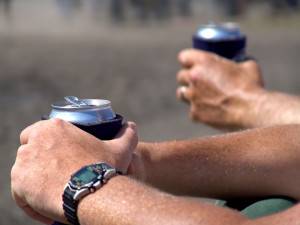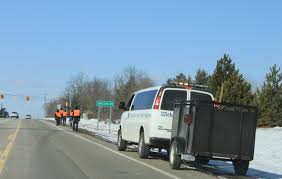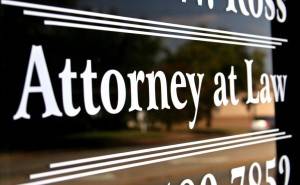California Minor in Possession Laws: Business and Professions Code 25662 BP

Under California Business and Professions Code (BP) 25662, it is a misdemeanor for any person under the age of 21 to have any alcoholic beverage in his or her possession on any street, highway, or in any place open to the public.1 Often referred to as “minor in possession” law or “underage drinking” law, BP 25662 applies to not only minors, but also to persons over the age of 18 who are still under the age of 21.
Prosecution for Minor in Possession of Alcohol
To secure a conviction for violations of BP 25662, the prosecutor must prove the following:
<
- The defendant unlawfully possessed an alcoholic beverage;
- The defendant was on a street, highway, public place, or a place open to the public); AND
- At the time, the defendant was under 21 years old.2
Key Terms Under BP 25662
While the elements of this crime are rather clear; it is important to fully understand the terms specified under this law.
Unlawful
Possession of alcohol by a person under the age of 21 is legal under certain circumstances. BP 25662 states that it is lawful to possess the beverage if the minor is following reasonable instructions from an adult. Specifically, the law notes that it is legal if the person is following “the instructions of his or her parent, legal guardian, responsible adult relative, or adult designee relating to disposition of the alcoholic beverage.” This can be either in delivering the beverage (such as carrying it from the car parked on the street to the house), or throwing it in the trashcan that is set out on the curb. It also includes handling the beverage as part of the defendant’s occupation, such as serving alcohol as a waiter or waitress.
Possession
Possession does not simply mean that the defendant had the drink in his or her hand. It can also be applied “constructively,” which means that the defendant had or shared control with another over the beverage. For example, if you went to the beach, and were drinking from a beer bottle that you then put down on a towel nearby, you are still considered to be in possession of the bottle.
Public Place or Place Open to the Public
This phrase seems like it is redundant, but there is a slight difference between a public place, and a place that is open to the public. A “public place” is one that is always open to the public, such as sidewalks, public beaches, or parks. A “place that is open to the public” is private property that is made available to the public for various reasons, such as a shopping center, or an amusement park.
Penalties for Violating BP 25662

Punishment for minor in possession upon a first conviction results in a $250 fine and 24 to 32 hours of community service.
In addition to these penalties for underage drinking, your driving privilege will be affected. Under California Vehicle Code §13202.5, any person who is convicted of possession of alcohol while under the age of 21 will have their driver’s license immediately suspended for one year, and if you have not yet obtained your license, the court will notify the DMV to delay your license for one year after you pass your driving test.3
Defenses to BP 25662
In order to convict you of underage drinking, the prosecution must prove that you were not following the orders of a parent or legal guardian to deliver or dispose of the beverage and that you were acting upon your own recognizance.4
There are other defenses to a charge of violating BP 25662. Some defenses include:
- No possession – If the beverage was in the exclusive control of someone else, the prosecution may not be able to meet this element.
- Possession in a private residence – It is not unlawful to possess an alcoholic beverage in a place that is not public or open to the public, such as a private home.
Self-Reporting of Consumption Immunity
There is also a defense involving self-reporting of alcoholic consumption. California Business and Professions Code 25667 gives immunity from criminal prosecution for possession of an alcoholic beverage to any person under the age of 21 years who meets the following conditions:
- He or she called 911 and reported that either himself or herself or another person was in need of medical assistance due to alcohol consumption;
- He or she was the first person to make the 911 report;
- He or she reported that another person was in need of medical assistance, remained on the scene with the other person until that medical assistance arrived and cooperated with medical assistance and law enforcement personnel on the scene; and
- The person’s consumption of alcohol was not related to activities that made the consumption more dangerous, such as driving under the influence.
Frequently Asked Questions Regarding Minor in Possession Charges
-
Could I be arrested for underage drinking if I am holding an alcoholic drink but haven’t been drinking it?
Yes. BP 25662 does not require that a person has consumed any alcoholic beverage. It simply requires that a person under the age of 21 be in control of the drink in any manner.
-
I went to a party where there was underage drinking, but I did not touch any of it. Could I get in trouble?
It depends on the circumstances. If the party is in either a public place, or a place that has been made open to the public, and you were handling alcohol (such as bartending for your friends), you could be arrested if the police caught you.
-
My friend and I are under 21 and had some drinks. He needs to go to the hospital because he drank too much alcohol. Will I get arrested if I call for help?
Probably not. The law creates a “safe harbor” for people to seek medical attention for themselves or others by giving immunity against prosecution for being in possession of alcohol under the age of 21. However, if the possession was related to another crime that made the possession of alcohol dangerous (such as drinking and driving), the immunity will not apply.
Contact Wallin & Klarich Today If You Have Been Arrested for Being a Minor in Possession of Alcohol

In addition to fines and community service, a minor in possession charge can result in a one year suspension of your driver’s license. In these types of cases, the court will often accept a guilty plea and issue a fine but will not tell you that your license will be suspended. If you or a loved one are under the age of 21 and were arrested for possessing alcohol, speak to an experienced criminal defense attorney at Wallin & Klarich today.
Our attorneys at Wallin & Klarich have over 40 years of experience defending those charged with minor in possession in California. With offices in Los Angeles, Sherman Oaks, Torrance, Tustin, San Diego, Riverside, San Bernardino, Ventura, West Covina and Victorville, we can help you get the best possible results in your case no matter where you work or live.
Call us today at (877) 4-NO-JAIL or (877) 466-5245 for a free, no obligation, telephone consultation. We will get through this together.
1. Cal. Bus & Prof. Code §25662: “(a) Any person under the age of 21 years who has any alcoholic beverage in his or her possession on any street or highway or in any public place or in any place open to the public is guilty of a misdemeanor. This section does not apply to possession by a person under the age of 21 years making a delivery of an alcoholic beverage in pursuance of the order of his or her parent, responsible adult relative, or any other adult designated by the parent or legal guardian, or in pursuance of his or her employment. That person shall have a complete defense if he or she was following, in a timely manner, the reasonable instructions of his or her parent, legal guardian, responsible adult relative, or adult designee relating to disposition of the alcoholic beverage.”↩
2. CALCRIM No. 2960, Possession of Alcoholic Beverage by Person Under 21 (Bus. & Prof. Code, § 25662(a)).↩
3. Cal. Veh. Code §13202.5: “(a) For each conviction of a person for an offense specified in subdivision (d), committed while the person was under the age of 21 years, but 13 years of age or older, the court shall suspend the person’s driving privilege for one year. If the person convicted does not yet have the privilege to drive, the court shall order the department to delay issuing the privilege to drive for one year subsequent to the time the person becomes legally eligible to drive. However, if there is no further conviction for an offense specified in subdivision (d) in a 12-month period after the conviction, the court, upon petition of the person affected, may modify the order imposing the delay of the privilege. For each successive offense, the court shall suspend the person’s driving privilege for those possessing a license or delay the eligibility for those not in possession of a license at the time of their conviction for one additional year.”
“(…) (d) This section applies to violations involving controlled substances or alcohol contained in the following provisions:
- Article 7 (commencing with Section 4110) of Chapter 9 of Division 2 of, and Sections 25658, 25658.5, 25661, and 25662 of, the Business and Professions Code.
- Division 10 (commencing with Section 11000) of the Health and Safety Code.
- Section 191.5, subdivision (a) or (b) of Section 192.5, and subdivision (f) of Section 647 of the Penal Code.
- Section 23103 when subject to Section 23103.5, Section 23140, and Article 2 (commencing with Section 23152) of Chapter 12 of Division 11 of this code.”↩
4. See CALCRIM No. 2960.↩

